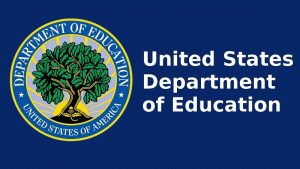The United Negro College Fund (UNCF) has announced plans for a new online platform for community learning, HBCUv.
The Department of Education is soliciting grant applications for its Educational Technology, Media, and Materials for Individuals with Disabilities Program.
New Mexico State University (NMSU) has named Thomas Bunton as its new associate vice president and chief information officer.
A new report published by the non-profit K12 Security Information Exchange (K12 SIX) finds that while the number of publicly-disclosed cyber incidents at K-12 schools decreased in 2021, the actual number is “surely bleaker,” emphasizing the need for more and better information sharing about K-12 cyber incidents.
Bowdoin College in Maine announced the launch of its Digital Excellence Commitment (DExC), which will provide all current and future students with a suite of Apple technology products, as well as access to a range of course-specific software “designed to advance learning, inspire innovative teaching, and create digital equity across the student body in the use of tools essential for success in the twenty-first century.”
The Federal Communications Commission (FCC) has committed an additional $64 million in funding for the Emergency Connectivity Fund (ECF) program.
The Cybersecurity and Infrastructure Security Agency (CISA) has released its third edition of the CISA K-12 School Security Guide and School Security Assessment Tool (SSAT).
A new report from the College Innovation Network (CIN) highlights the importance of fostering belonging among online students, and shows how intentional design of virtual spaces can enable impactful peer connections.
New legislation introduced in the House this week to Congress would allocate Federal granting funding to schools to promote cybersecurity education programs.
The NYC Media Lab is launching a $1 million initiative intended to help museums and cultural institutions develop new augmented reality (AR) and virtual reality (VR) educational content.












